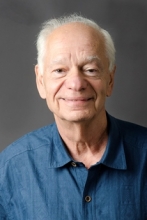ChEMS Seminar: The Substance of Civilization - Materials and Human History from the Stone Age to the Age of Silicon

Department of Materials Science and Engineering
Cornell University, Ithaca, NY
Abstract: Materials enabled revolutionary advances in how we live, work, fight and travel, hence the naming of eras after them -- Stone, Bronze and Iron Ages. This talk explores the role of materials in the development of modern industrial civilizations by putting technology into a historical and human context, examining the advances made possible by innovations with materials. Connections between critical developments and events are identified, for example, in the fourth millennium BCE, among materials, agriculture and written languages; and, at the close of the second millennium BCE, among the Exodus of the Hebrews, the chaos in the Eastern Mediterranean and the onset of the Iron Age. The remarkable inventions that emerged from China in the first millennium of the Common Era will be highlighted. Materials as revolutionary and, frequently, disruptive agents of change will be emphasized. Finally, it will be pointed out that throughout history, shortages have driven innovation, implying that the solutions to the shortages we face today may lead to developments that we cannot even imagine. Beautiful artifacts of clay, bronze, gold and glass illustrate the lecture.
Bio: Stephen L. Sass, professor emeritus of materials science and engineering, joined the Cornell faculty in 1967. He received his bachelor's degree in chemical engineering from the City College of New York in 1961 and his doctorate in materials science from Northwestern University in 1966. He was a Fulbright Scholar at the Technische Hogeschool, Delft, The Netherlands, 1966-67, and a fellow of the American Physical Society and ASM International. In 2001, Sass was named a Stephen H. Weiss Presidential Fellow, a universitywide honor recognizing “effective, inspiring and distinguished teaching of undergraduate students.” In 2012, he was the first recipient of the Distinguished Achievement Award for Alumni of Materials Science and Engineering at Northwestern for “breakthrough studies of grain-boundary structures using the Cornell High-Energy Synchrotron Source, his efforts to bring knowledge of materials science and engineering to a broad audience through teaching and authorship of The Substance of Civilization, and his success at nucleating the careers of students who have gone onto successful and distinguished academic careers of their own.” His research interests include the structure and properties of internal interfaces in solids and the development of methods for the fabrication of periodic surface structures with spacings on the nanometer-length scale. Sass has written 180 technical papers and holds three patents. In 1998, he published The Substance of Civilization: Materials and Human History from the Stone Age to the Age of Silicon, written to make science and technology accessible to non-scientists by putting them into a historical context.
Host: Alon Gorodetsky
Share
Upcoming Events
-
MAE 298 SEMINAR: Biomechanics of Rotator Cuff
-
CBE 298 Seminar: Micro- and Nanofluidic Systems for Molecular Biosensing, Nanotoxicity, and Optogenetics
-
MSE Special Seminar: Architecting 3D Complex Materials for Sustainability
-
MSE Special Seminar: Decarbonizing Industries for a Climate-resilient Future - From Renewable Energy to Sustainable Material Recovery
-
CEE Seminar: BIM and the Digital Twin
